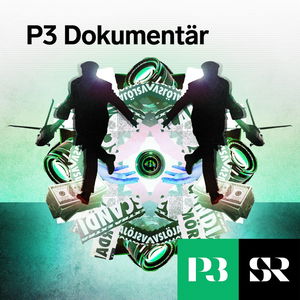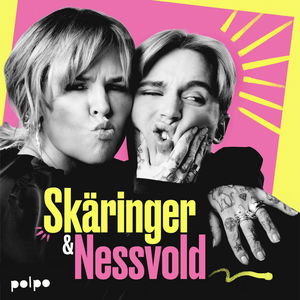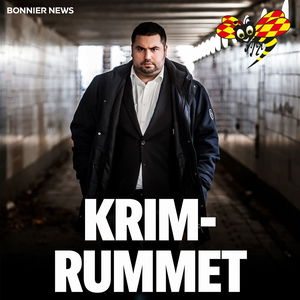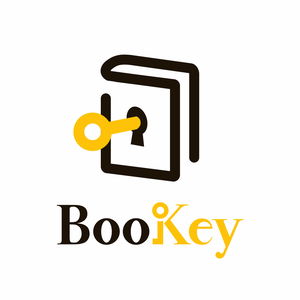

Chapter 1What is Different
In "Different" by Youngme Moon, the author challenges the traditional paradigms of market competition. Instead of businesses striving to one-up each other with incremental innovation, Moon invites readers to break the cycle of "comparative" strategies that lead to a sea of sameness. Through engaging narratives and sharp analysis, Moon illustrates how iconic brands like Apple, IKEA, and Harley-Davidson have succeeded by daring to be different. They've carved out unique identities not by responding to competitors but by fostering distinctive, sometimes unconventional approaches that resonate deeply with consumers. Moon argues that in a world overflowing with options, the real challenge is not just to be better, but to be truly different in ways that are meaningful and hard to replicate. Her book is a clarion call to businesses: to thrive, one must dare to step away from the crowd and champion uniqueness. Through the lens of different, entities can transform from mere participants to leading pioneers in their industries.
Chapter 2 Meet the Writer of Different
Youngme Moon, in her book Different, employs a distinctive and engaging writing style that effectively conveys her insights on market differentiation. She utilizes concise, impactful language that is both accessible and thought-provoking, enabling her to connect deeply with her readers. Her tone is conversational yet authoritative, drawing on a variety of anecdotes and case studies to enrich her narratives. This approach not only makes complex concepts relatable but also emphasizes the emotional resonance of being unique in a crowded marketplace. Moon's strategic use of language style, coupled with her precise choice of words, plays a crucial role in articulating the core emotions and meanings that underscore the essential value of differentiation in business.
Chapter 3 Deeper Understanding of Different
It appears that you are asking about the influence and significance of the concept of being "different" in literature, culture, or society. To address this inquiry, let's break down how the idea of difference has played out and its impacts across these areas:
1. Literature
In literature, the theme of being different has been a powerful tool for challenging societal norms and exploring human psychology. Different characters and settings allow authors to question mainstream culture and offer alternative ways of thinking and living.
- Modernist Literature: Writers like James Joyce and Virginia Woolf broke with traditional narrative styles, using stream of consciousness and other techniques to reflect the complexities and differences in human thought.
- Postcolonial Literature: Authors such as Chinua Achebe and Toni Morrison have used literature to highlight the differences in cultural, ethnic, and social backgrounds to address issues of identity, racism, and the legacies of colonialism.
- Dystopian Fiction: This genre often revolves around societies built on erasing differences (e.g., Aldous Huxley’s "Brave New World" and George Orwell’s "1984") and serves as a critique of the ways in which societal homogeneity can be used as a form of control.
2. Culture
Cultural movements often arise from or advocate for recognizing and valuing differences, whether they be in race, ethnicity, gender, or sexuality.
- Civil Rights Movement: Highlighting racial differences and inequalities led to significant cultural and legislative changes in societies, particularly evident in the 1960s America.
- Feminism: By discussing the differences in gender experience, feminists have challenged patriarchal structures and have significantly influenced various aspects of culture, including work, law, and art.
- LGBTQ+ Rights: The visibility of different sexual orientations and gender identities has grown, influencing everything from pop culture to legal systems, advocating for equality and acceptance.
3. Society
In societal contexts, the acknowledgement and acceptance of differences have often led to more inclusive and diverse communities. However, it also presents challenges such as polarization or discrimination, which can occur when the emphasis on differences fosters division rather than unity.
- Multiculturalism: Many societies now celebrate multicultural events and education, which helps to foster a more inclusive community that acknowledges different cultural backgrounds as enriching the societal fabric.
- Education: Educational strategies have increasingly focused on tailoring learning experiences to different learning styles and capabilities, acknowledging that one size does not fit all.
Impact on Thinking
The recognition of "being different" has led to significant shifts in thinking across many fields:
- Psychology: There has been a shift towards understanding individual differences in cognition, emotion, and behavior more deeply, influencing everything from therapeutic practices to educational psychology.
- Business: There’s an increasing emphasis on diversity and inclusion as drivers of innovation and productivity within corporate environments.
- Social Policies: Different needs and circumstances of various population segments influence policy-making, advocating for more tailored and often more equitable approaches.
Conclusion
The significance of being "different" influences almost every aspect of human interaction and societal structure. It challenges old norms and encourages new perspectives, fostering a more inclusive and comprehensive understanding of the human experience. These shifts can lead to profound transformations in how societies operate and individuals interact, making the concept of "different" a powerful catalyst for change and reflection in an interconnected world.
Chapter 4 Other Accessible Resources
Here’s a list of ten types of resources available across several major information media platforms:
1. Book Retailers
- Amazon: Offers the book in various formats (e.g., paperback, hardcover, Kindle). User reviews and ratings can give insights into how readers perceive the concepts discussed.
- Barnes & Noble: Similar to Amazon, with options for Nook books and possibly different reviews.
2. Libraries
- WorldCat: A global catalog of library collections. Useful to find the book in a library near you.
- Local Public Library: Check your local library’s online catalog. Libraries might also offer ebook versions or audiobooks.
3. Academic Journals and Databases
- Google Scholar: Useful for finding academic papers citing the book, which can provide deeper analyses or applications of the concepts.
- JSTOR or EBSCOhost: These databases might have reviews or citations of the book in the context of business and marketing studies.
4. Book Reviews and Summaries
- Goodreads: Contains user reviews, ratings, and sometimes detailed summaries by readers.
- Publisher’s Weekly, Kirkus Reviews: Professional reviews may be available on these sites, offering critical insights.
5. Podcasts
- Podcasts where Youngme Moon might have been interviewed about her book and business strategy. Look for business or marketing-focused podcast episodes.
6. YouTube
- Book reviews, summaries, or discussions about "Different" can be found on various channels, ranging from professional book reviewers to casual readers.
- University lectures or talks by Youngme Moon might also be accessible, offering more insights into her viewpoints.
7. Magazines and News Articles
- Business magazines like Forbes, Harvard Business Review, or Business Insider might have articles or interviews that reference the book or its author.
8. Blogs and Websites
- Business and marketing blogs may discuss themes from the book, offering practical applications and personal interpretations.
- Author’s own website or blog, where she might explore similar topics or provide updates.
9. Social Media
- LinkedIn: Youngme Moon’s professional profile, posts, and articles.
- Twitter: Follow Youngme Moon for updates, insights, or discussions related to the themes of her book.
10. Educational Resources
- Online course platforms like Coursera or edX may feature marketing courses using her book as a reference.
- Syllabi of business strategy courses from universities might list her book as a text or reference material.
These resources should provide a comprehensive view of "Different" by Youngme Moon from various angles, whether you're interested in detailed academic discussions, reader interpretations, practical applications in business, or insights from the author herself.
Chapter 5 Similar Books Like Different
If you enjoyed the themes and perspectives explored in the book "Different," here are five books that offer similarly compelling insights and unique viewpoints on their respective topics. They'll energize your thinking and challenge your views in a way that's as invigorating as it is enlightening.
1. "Outliers: The Story of Success" by Malcolm Gladwell
- Malcolm Gladwell takes a deep dive into what really makes people successful. Differing from typical perceptions that focus solely on individual ambition and intelligence, Gladwell brings light to the cultural, community, and familial contexts that contribute to personal achievements. The real-life examples ranging from Bill Gates to the Beatles make for compelling arguments about the often-overlooked external factors that shape our paths to success.
2. "Quiet: The Power of Introverts in a World That Can't Stop Talking" by Susan Cain
- This book is a must-read if you're interested in the dynamics of personality and productivity. Susan Cain argues passionately for the strengths and capabilities of introverted individuals, who are often overshadowed in a culture that celebrates extroversion. Highlighting various advantages and abilities of introverts in leadership, creativity, and other domains, “Quiet” presents an alternative view that champions the quieter among us.
3. "Sapiens: A Brief History of Humankind" by Yuval Noah Harari
- Yuval Noah Harari provides a sweeping narrative of our history as a species, from the emergence of Homo sapiens in the Stone Age up to the twenty-first century. This intriguing read challenges you to rethink everything from the development of agriculture to the creation of scientific revolutions. Harari's insights on how shared beliefs underpin societies will especially resonate with those intrigued by the cultural critiques in "Different."
4. "Thinking, Fast and Slow" by Daniel Kahneman
- This seminal work by Nobel laureate Daniel Kahneman delves into the dual processes that drive the way we think. Presenting a profound look at the dichotomy between fast, instinctive reactions and slower, more deliberate thought processes, Kahneman's book will change how you understand your decisions and the cognitive biases that influence everyone. This aligns with the psychological and philosophical exploration similar to what readers appreciate in "Different."
5. "The Power of Habit: Why We Do What We Do in Life and Business" by Charles Duhigg
- Exploring the science behind why habits exist and how they can be changed, Charles Duhigg’s book offers a fascinating look at the potent role of habits in our lives. Linking neurological studies with captivating stories from various facets of life, Duhigg’s insights help understand how habits work and how they can be transformed to foster success.
Each of these books, like "Different," provides a fresh perspective on its respective subject, combining thorough research with engaging storytelling. They're sure to expand your understanding and perhaps even change the way you look at the world.
Book https://www.bookey.app/book/color
Author https://www.bookey.app/quote-author/victoria-finlay
Quotes https://www.bookey.app/quote-book/color
YouTube https://www.youtube.com/watch?v=1Fjsho7o3-k
Amazom https://www.amazon.com/Audible-Color-Natural-History-Palette/dp/B0B7XWR2KS
Goodreads https://www.goodreads.com/book/show/19596.Color?from_search=true&from_srp=true&qid=NNWw0sMnpC&rank=4
Senast besökta

Bookey App 30 mins Book Summaries Knowledge Notes and More

SBS Korean - SBS 한국어 프로그램

말술남녀 - 쉽고 맛있는 술이야기

🎙️ Audit by Neeraj
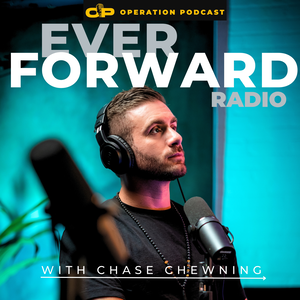
Ever Forward Radio with Chase Chewning

The Board Game Design Lab

Korean Study Cafe Podcast

Get Stacked Investment Podcast

Raspberry Revolutionaries






